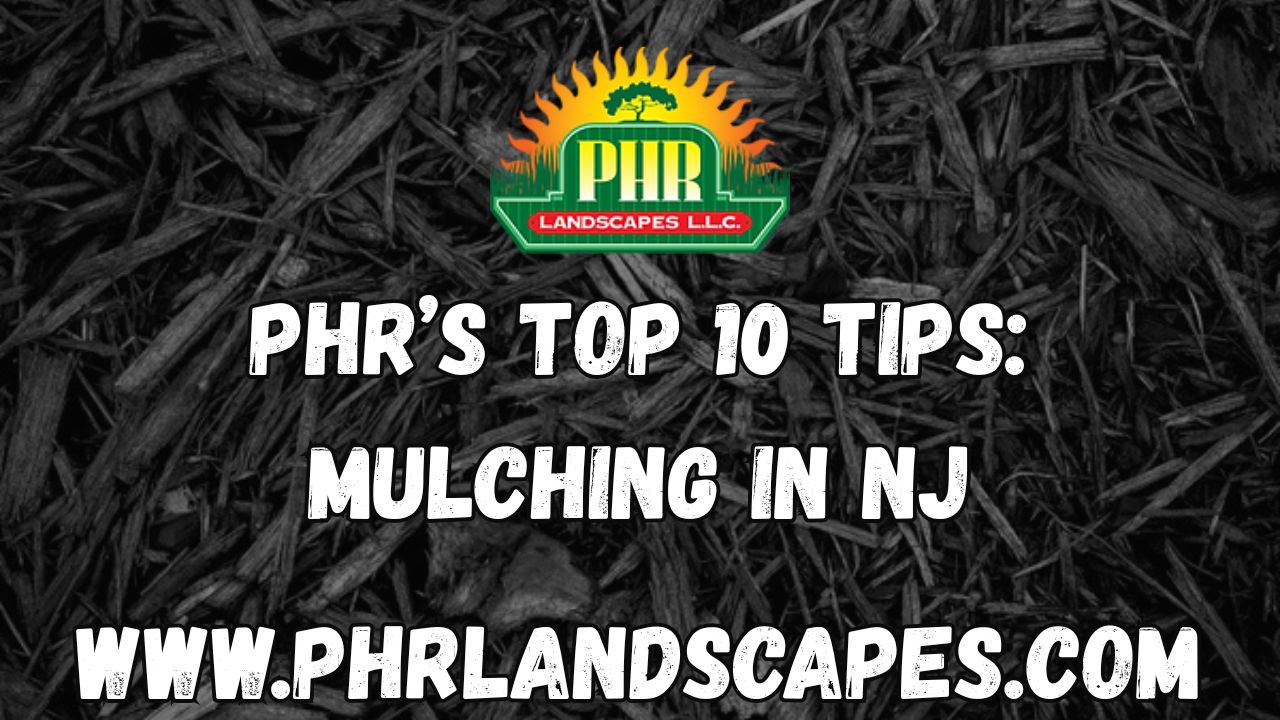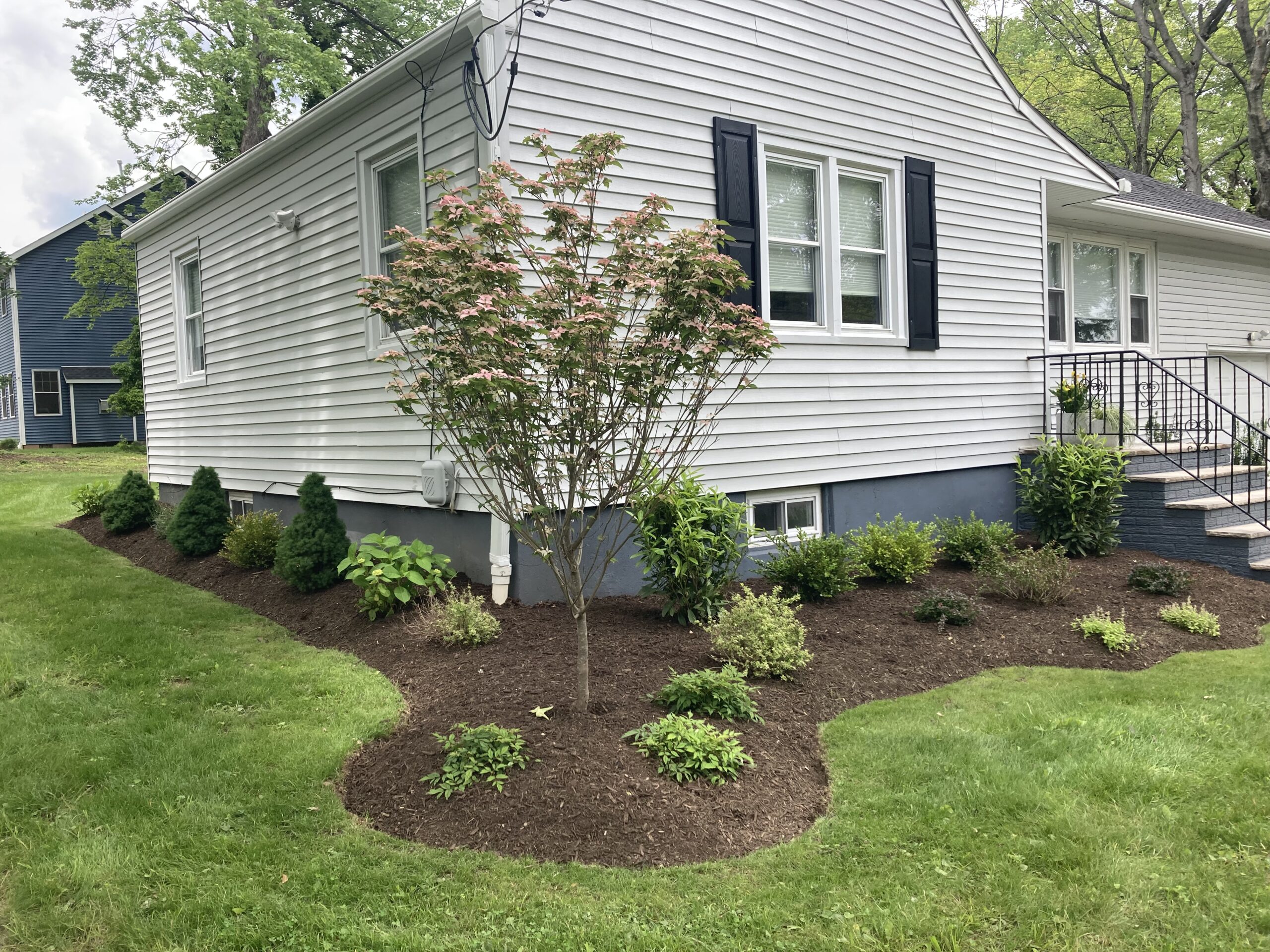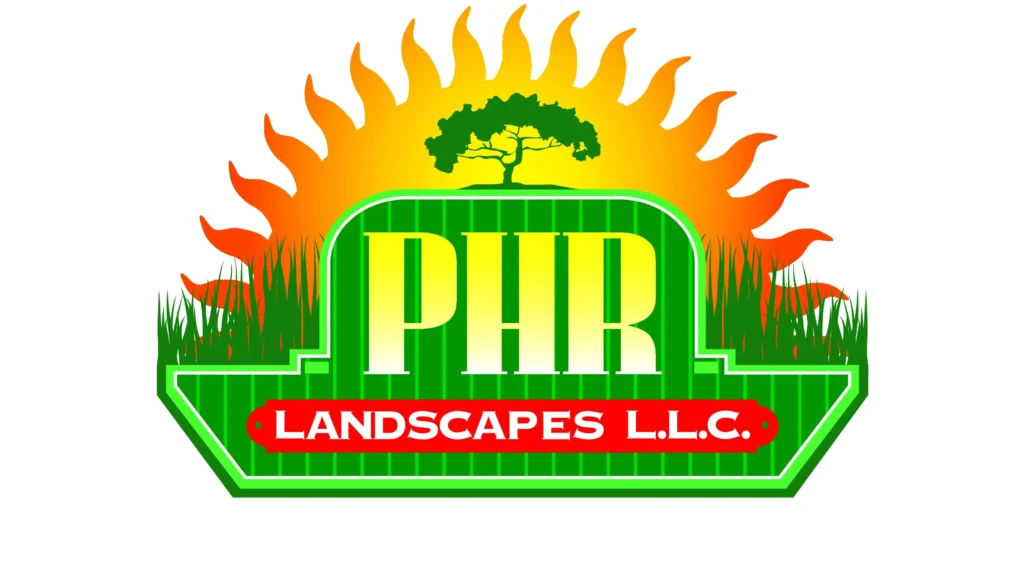PHR’s Top 10 Mulching Tips for New Jersey Homes
As summer approaches in New Jersey, homeowners are turning their attention to landscape maintenance that ensures lush growth and long-term curb appeal. One of the most powerful, low-cost tools you can use is mulch. Whether you’re updating garden beds, managing erosion, or improving yard drainage, proper mulching makes a noticeable difference. In this guide, we walk you through PHR’s Top 10 Mulching Tips for New Jersey homes. These tips will show you how to mulch properly, help retain moisture, suppress weeds, and protect plants during the hot months ahead.

1. Apply the Right Mulch Depth
- For organic mulches (wood chips, bark, compost), apply 2–4 inches of coverage; inorganic mulches like gravel or rubber may need only 2–3 inches.
- Too little mulch won’t retain moisture; too much can suffocate roots, foster disease, or create “mulch volcanoes” around trees.
Using the correct depth of mulch is critical for achieving its full benefits. For organic materials like bark or wood chips, apply 2–4 inches; for inorganic mulch such as gravel, 2–3 inches is sufficient. Too little mulch fails to conserve moisture or stop weeds, while too much can prevent oxygen from reaching plant roots and encourage rot. Always maintain consistent thickness across beds for even moisture retention.
2. Keep Mulch Off Tree Trunks and Foundations
- Avoid piling mulch directly against trunks or basements. Maintain a 2–4 inch gap to prevent rot and termite pests.
- Ensure ground slopes away from foundations to aid proper drainage.
Mulch should never be piled directly against tree trunks or home foundations. This mistake often leads to trunk rot, fungal growth, and pest infestations. Leave a 2–4 inch gap around trunks and structural walls to promote air circulation and reduce the risk of termites or water damage. Keeping mulch away from foundations also helps prevent basement seepage and mold.
3. Choose the Best Mulch Types for NJ Climates
- Wood-based mulches (bark, wood chips): long-lasting, attractive, and effective at moisture control.
- Pine straw: excellent on slopes, provides erosion control, and stabilizes acidic soils.
- Compost/leaf mulch: nutrient-rich, biodegradable, ideal for garden beds.
- Inorganic mulches: gravel/river rock for drainage-critical zones or under swings where cleanliness matters.
New Jersey’s mixed climate makes certain mulches more effective than others. Wood chips and bark last long and enhance visual appeal, while pine straw works well on slopes due to its interlocking structure. Compost or leaf mulch is excellent for flower and vegetable beds thanks to its soil-enriching properties. Inorganic mulches like gravel are best for pathways and drainage-heavy areas.
4. Time Your Mulch Application
- Spring (after the soil warms) and fall (after plants go dormant) are ideal times.
- In New Jersey, meliorate mulch between late April and mid-May for optimal growth and moisture retention.
The best times to apply mulch in New Jersey are late spring and early fall. In spring, wait until the soil has warmed to promote healthy plant growth. Fall mulching helps insulate roots and retain soil moisture through winter. Applying mulch at the right time maximizes its impact on plant health and reduces the need for watering and weed control.
5. Improve Yard Drainage With Mulch
- Mulch intercepts rain, reduces runoff, and encourages infiltration.
- Infiltration studies show organic mulch can reduce runoff by 20–80%, depending on thickness.
- Well-mulched rain gardens or bioretention areas can absorb up to 90% of stormwater annually.
Mulch can play a big role in stormwater management by absorbing rainfall and reducing surface runoff. Organic mulch creates a porous layer that allows water to soak into the soil rather than pooling on top. This is especially helpful in flat or clay-heavy areas common in New Jersey. Strategic mulching around garden beds and rain gardens can improve infiltration by up to 80%.
6. Select Quality Mulch Source
- Opt for reputable brands or local arborist chips, free from disease or harmful chemicals.
- Avoid fresh mulch that can rob soil nitrogen or contain pests.
Not all mulch is created equal. High-quality mulch from reputable suppliers is free from disease, pests, and synthetic chemicals. Cheap or recycled mulch may contain contaminants or weed seeds that harm your landscape. Look for natural, well-aged mulch that smells earthy and shows no signs of mold. Sourcing locally can also ensure climate-appropriate material.
7. Turn and Refresh Annually
- Fluff mulch yearly to prevent matting and preserve air/moisture permeability.
- Add ½–1 inch fresh mulch annually rather than piling on thick layers.
Over time, mulch can compact and lose its effectiveness. It’s important to rake or fluff existing mulch each year to restore airflow and water permeability. Adding a fresh half-inch to one inch annually can keep your beds looking vibrant and functioning properly without over-mulching. This annual maintenance also helps suppress weed growth and boost aesthetics.
8. Tailor Mulch for New Jersey Landscaping
- In areas prone to clay compaction, organic mulch plus compost improves drainage.
- Gravel or coarse bark are smart choices near patios or high-traffic areas to resist compaction.
Each landscape has unique requirements depending on soil type, sun exposure, and usage. In clay-heavy soil areas, use mulch that improves drainage like shredded bark mixed with compost. For high-traffic zones such as walkways, choose durable inorganic options like gravel or rubber mulch. Matching mulch type to each section of your yard maximizes performance and longevity.
9. Integrate with Backyard Drainage Solutions
- Pair mulch with:
- French drains or perforated piping in persistent waterlogged zones.
- Bioswales and shallow channels that use mulch and plants to channel runoff.
- Rain garden mulched beds that store and filter stormwater before infiltration.
Mulch pairs well with engineered drainage strategies like French drains, dry wells, and bioswales. Mulching over perforated piping or in rain gardens slows down water and improves absorption into the ground. When used with sloped swales or berms, mulch helps direct stormwater away from foundations and into safe drainage areas, reducing erosion and water damage risk.
10. Use Specialized Mulch Around Sensitive Plants
- Acid-loving plants (azalea, rhododendron) thrive under pine or spruce mulch.
- Vegetable and perennial beds benefit from nutrient-rich compost mulches.
- Living mulch such as clover or grass aligns with sustainable landscapes.
Different plants have different needs when it comes to soil chemistry and moisture. Acid-loving plants like azaleas and rhododendrons prefer pine-based mulch, which slightly lowers soil pH. Vegetable gardens thrive with compost-based mulch that adds nutrients as it breaks down. Living mulches like clover offer a sustainable alternative that provides ground cover and nitrogen-fixing benefits.
Bonus: Mulch Benefits for Soil & Water
Mulching doesn’t just make your yard look tidy—it significantly improves environmental performance. It reduces the need for frequent watering, prevents erosion, moderates soil temperature, and blocks weed growth. Proper mulching leads to healthier plants, improved root systems, and a more resilient landscape over time.
How to Mulch in NJ: Quick Guide
- Refill lightly each spring.
- Clear dirt, weeds, debris.
- Loosen soil and add compost in heavy clay areas.
- Water the soil before mulching.
- Lay landscape fabric if desired.
- Apply mulch evenly, 2–4 inches deep.
- Keep mulch away from trunks and foundations.
- Edge beds to contain material.
When you’re ready to enhance yard drainage and apply expert mulching, PHR Landscapes brings unmatched value:
- Local specialists in Scotch Plains, Fanwood, Westfield, and nearby
- Use of premium organic and inorganic mulch tailored to your soil type
- Integrated drainage solutions—French drains, bioswales, rain gardens
- Maintenance-free approach with annual follow-ups included

Follow these mulching tips, and you’ll set your yard up for success now and into the fall. If you ever need a hand, you know who to call!
Landscaping in Scotch Plains, Fanwood, Westfield and Surrounding Areas
Looking for quality landscaping services in Scotch Plains, NJ? From Planting to Yard Renovations, PHR Landscapes is here to help your property thrive.
👉 Contact us today for a free consultation.
Share This Post with Friends & Colleagues

Follow us on Facebook @PHRLandscapes
Phone: (908) 322-6500
Email: sales@phrlandscapes.com
1590 E. 2nd Street, Scotch Plains, NJ 07076


